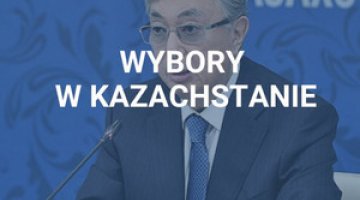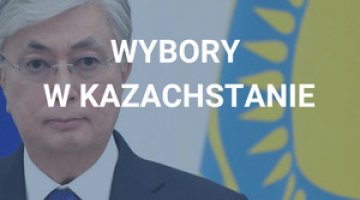Analyses
Kazakhstan: anti-crisis parliamentary elections
On 20 January, President of Kazakhstan Nursultan Nazarbayev dissolved the lower house of parliament (the Mazhilis) and called early general elections for 20 March (according to the calendar, the elections should have been held at the turn of 2017). At the same time elections will also be held to local councils at all levels (from village to city councils). Kazakhstan’s Mazhilis has 107 seats. The parliament in Kazakhstan is completely dependent on the president, and its role largely consists of an unconvincing masking of the government’s authoritarian nature.
Commentary
- The early elections are being held in a difficult socio-economic situation. Kazakhstan is struggling with serious problems caused by the decline in prices of crude oil, which is the country’s main export product (with about a two-thirds share of exports). The government’s responses have included, on one hand, efforts to prevent outbreaks of social dissatisfaction (such as raising social benefits for those most at risk of impoverishment due to the devaluation of the national currency); and on the other, wide-ranging economic reforms (mainly reviving attempts to diversify the economy, such as the development of agriculture). For now, these activities, and the government narrative that does not hide the crisis, have largely prevented grass-roots protests (so far there has been just one, which was informal in nature and was aimed at commercial banks). In this context, the elections should be seen as an attempt to divert attention from the economic problems and to channel the rising public discontent into the electoral process. The elections are also a kind of preventive move: from the authorities’ perspective, it is easier to hold them in the spring rather than in a year’s time, when the public will feel the deterioration of its well-being much more.
- In the political dimension, the elections are part of an process of adjusting the state’s direction, which has been ongoing for several months. This has been caused both by concerns at potential threats from Russia (its aggression towards Ukraine, and its pressure to integrate the post-Soviet area), and by the spectre of deep economic and social crisis. Nazarbayev is seeking to make the state more efficient by reforming the administration, including by attracting specialists and attempting to make it function more professionally. Another part of this process lies in removing the old elite from power and replacing it with younger, often Western-educated people (for example, in the last two months influential politicians such as Nurtai Abykayev, the head of the Kazakh National Security Committee, and Uzakbai Karabalin, the deputy energy minister, have gone into retirement). The president seems to assume that the new parliament should be more pluralist (with new faces and new parties), and serve as a tool for criticism of the government, acting as a “constructive opposition”. This would be preparation for the possible strengthening of its role in the political system.
- Holding elections runs some risk of protests despite Nazarbayev’s full control over the system. The electoral process could become an opportunity for the expression of social discontent, which may be fostered by the linking of the local with the national elections (rising public anger at the corruption of officials in a situation of economic crisis). There may also be uncertainties linked to replacing the elite in a period of dwindling financial resources and marginalising the old team. Although they are losing their positions, they will want to retain their informal political and economic influence, which could have a destabilising effect on the system.



